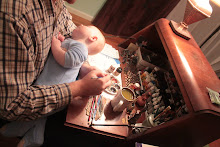K is for Kékhzmet in our eleventh installment of the Deepest Sea A-Z.
Geography
Located south of the Deepest sea, Kékhzmet is between Györ to the west and several smaller kingdoms to the east. South is the barbarian kingdom of Oülös, where the border seemingly shifts with the seasons. Like most of the human kingdoms, Kékhzmet is divided by the Rim into two primary territories, one bordering the Deepest sea, and another to the south of the Rim.
The territory north of the rim is fertile, and is dominated by grain and woodlands. Most of the population lives in this area, which is highly divided into small baronies. The area south of the rim is more arid and is economically dominated by cattle barons, who rule vast tracks of land, with small populations easily outnumbered by cattle and horses.
Population
Kékhzmet and neighboring Györ are the eastern and western portions respectively of the former kingdom of Pannonia, which itself had ruled former Imperial lands under the Dacian dynasty for nearly 400 years. Pannonia was conquered by the Mägr tribe, which invaded from the south, in AGM492 after a five year war following the death of the last Dacian king and resulting civil war (AGM487).
Ethnically, the majority of the population is Nord, and the lords are mostly their former barbarian conquerors. The original Franka language dialect has been replaced by the new hybrid language Kékhzmetic, which is predominantly Finic in vocabulary, but uses the grammar of the ancestral Nord language. Due to the upheaval in rule, and the generally arid terrain, the population of Kékhzmet is somewhat low, on the order of 2 million.
Law
Kékhzmet is ruled by a king, who expresses his power through his barons. Greater barons have greater land holdings, and may have lesser barons under them. Technically the greater barons are supposed to form a council for the king, however those south of the rim rarely make the long journey back to the capitol. Each barony has its own courts, and slight variations of the common law. Sentences may be appealed to the greater barons, or the crown itself, although this is not done for lesser crimes. Trial by judicial combat is still common in the far southern regions of the country. To the eyes of those from the Empire, or more settled human kingdoms, penalties for crimes are harsh, although the total crime rate seems to be lower.
Elves are mistrusted in Kékhzmet, particularly around the cattle. There are laws against selling cattle to Elves, and those who travel there must constantly prove that they own their mounts. Elves are not allowed to handle beef, and those that wish to eat it must not handle it with their hands.
Cities
Szépes
The largest city of the Kingdom, known for the vagaries of its law. Located slightly inland from the Deepest Sea up a large river. Primary trade is grain shipments around the Deepest Sea, as part of the circular trade. Population is 4700 households
Négymacs
The second city of the Kingdom, and the capitol. Located on the shores of the Deepest sea, there is a large fishing industry, as well as many iron bloomeries working iron ore brought down from the mountains. Population is 3500 households
Ebéz
Located across the Po river from Emilla, only a few leagues from the capitol city of Emillo. There is a substantial population of Laténs in the city, which gives it a more relaxed air than the other cities of Kékhzmet. Trade is predominantly in cattle and horses, sent to the Latén counties. Population is 2750 households
Josza
Located in the far south of the country, this city is a trading post with the barbarians, as well as a heavily militarized city. Population is 1850 households
Sarand
Located in the center of the country, this city is on the internal trade route between the north and south parts of the country, and has a particularly large merchant quarter as a result. Population is 1670 households
Ir-Simha is a small dwarven kingdom located in the Rim, between northern and southern Kékhzmet. Techincally a vassal state of the kingdom, in actuality it is nominally independent, although the lack of arable land in Ir-Simha means that the dwarves depend on trade with the rest of Kékhzmet.
Thursday, more Deepest Sea A-Z with Lécce.
Wednesday, April 13, 2011
Subscribe to:
Post Comments (Atom)


No comments:
Post a Comment